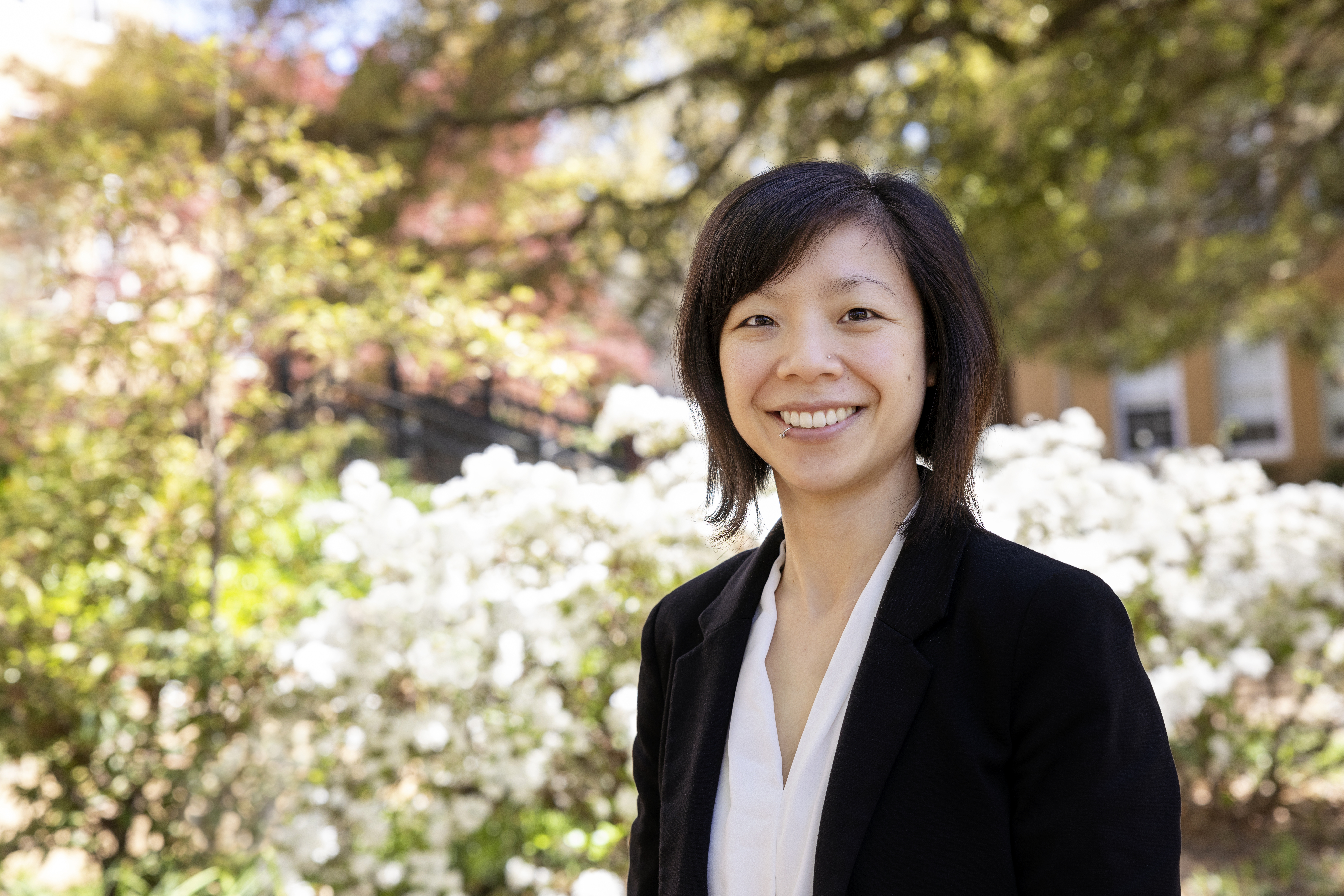Equal Partners? How Dual-Professional Couples Make Career, Relationship, and Family Decisions
Fri, November 17, 2023 12:00 PM at Zoom
Short Bio:
 Jaclyn S. Wong is an Assistant Professor in the Department of Sociology and a Faculty Affiliate of the Department of Women’s and Gender Studies at the University of South Carolina. She received her PhD in Sociology with a graduate certificate in Gender and Sexuality Studies from the University of Chicago. Her research uses qualitative and quantitative methods to examine gender inequalities in paid and unpaid work within and between couples and families over the adult life course. She has published articles in outlets like Gender & Society, Journal of Family Theory and Review, Journal of Family Issues, and the Journal of Gerontology: Social Sciences. Her book, Equal Partners? How Dual-Professional Couples Make Career, Relationship, and Family Decisions is now available from University of California Press.
Jaclyn S. Wong is an Assistant Professor in the Department of Sociology and a Faculty Affiliate of the Department of Women’s and Gender Studies at the University of South Carolina. She received her PhD in Sociology with a graduate certificate in Gender and Sexuality Studies from the University of Chicago. Her research uses qualitative and quantitative methods to examine gender inequalities in paid and unpaid work within and between couples and families over the adult life course. She has published articles in outlets like Gender & Society, Journal of Family Theory and Review, Journal of Family Issues, and the Journal of Gerontology: Social Sciences. Her book, Equal Partners? How Dual-Professional Couples Make Career, Relationship, and Family Decisions is now available from University of California Press.
Talk Title:
Equal Partners? How Dual-Professional Couples Make Career, Relationship, and Family Decisions
Talk Abstract:
Young Americans expect to form egalitarian partnerships in which both partners work for pay and perform unpaid housework and childcare. Yet, working couples’ realities often deviate from this ideal, with women trading off paid work to take on unpaid family care. Will contemporary young professionals in different-gender relationships repeat this pattern, or will they follow different trajectories as they launch and build careers, maintain relationships, and start families? How do conditions at work and cultural norms shape these pathways? Further, what do these trajectories tell us about the state of the gender revolution and its likely future? Using data from 156 interviews collected over six years from the partners of 21 different-gender couples, Equal Partners? How Dual-Professional Couples Make Career, Relationship, and Family Decisions documents how consistently supportive workplaces, partners’ steadfast gender-egalitarian attitudes, and men’s and women’s jointly coordinated action all need to come together for couples to experience gender equality in work and family. Weaknesses in any of these areas can divert partners away from equal sharing, but changes to partners’ work landscapes; their attitudes about gender, work, and family; or the way they take action together can result in a new balance that may be more – or less – gender-equal.

